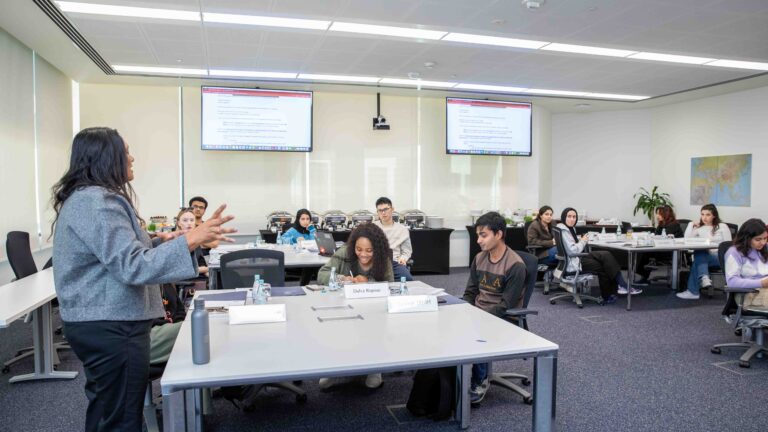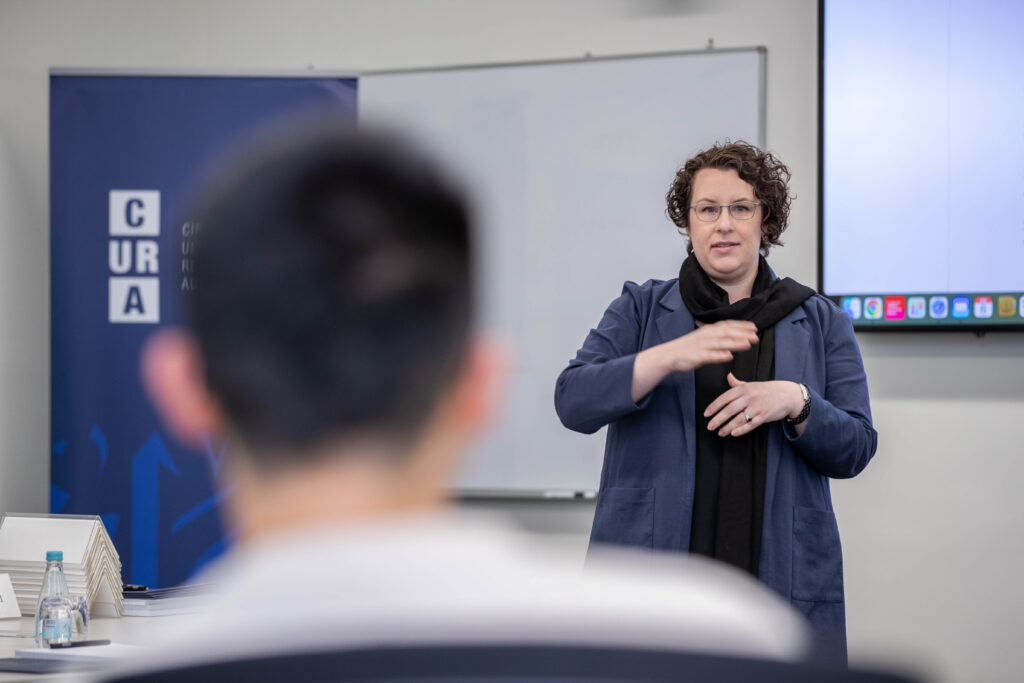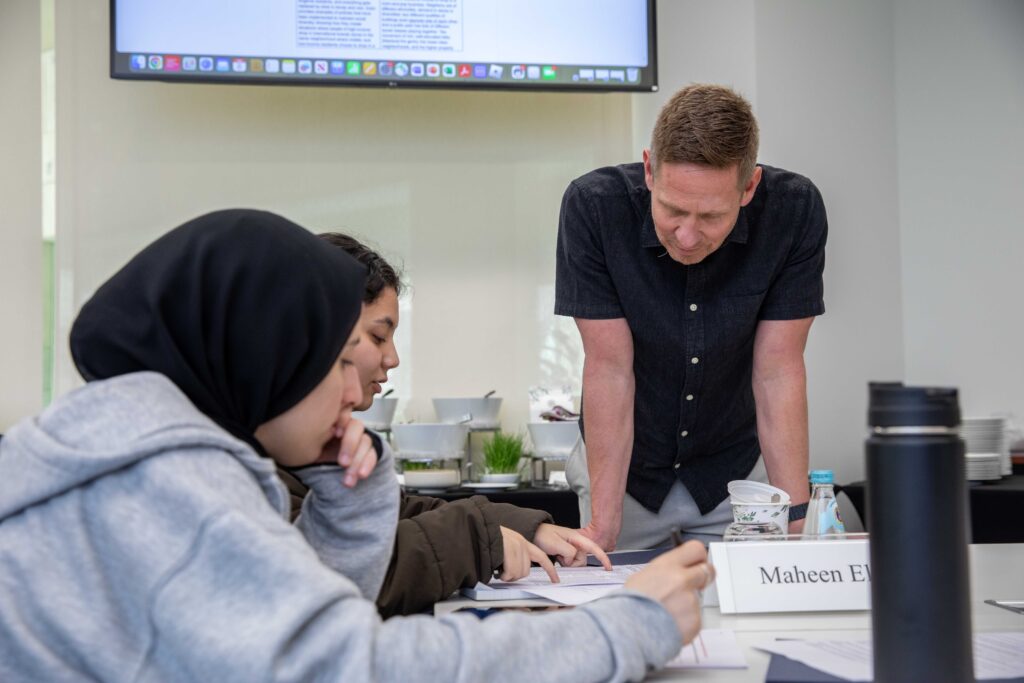Student Engagement
CURA Research Skills Workshop: Tools for Effective Argumentative Writing

On February 8, 2024, the Center for International and Regional Studies (CIRS) hosted a research skills workshop titled “Tools for Effective Argumentative Writing.” The workshop was presented in collaboration with the Office of Academic Services at Carnegie Mellon University in Qatar (CMU-Q), under the auspices of the CIRS Undergraduate Research Advancement (CURA) program. Twelve undergraduate students from GU-Q attended the workshop, which was led by CMU-Q’s Professors Thomas Mitchell and Silvia Pessoa.
“Analyzing and deconstructing sample texts, revealed the various components that blend together to create a coherent and persuasive argument. The ability to break down arguments is a valuable skill that I gained from the workshop.”
– Workshop participant

Using a hands-on approach, Professors Mitchell and Pessoa guided students through several peer-review activities using excerpts from real essays and papers submitted by GU-Q students. This activity involved both individual and group analysis of different excerpts, focusing on various elements of effective argumentative writing.
One interesting activity involved a thorough analysis of pairs of similar phrases within the same context to determine the most effective claims. Students explained their reasoning and received insights from the professors on accurately identifying the attributes of a descriptive claim versus an argumentative claim. Special attention was given to sources and language as major elements influencing the reader’s understanding of the author’s position. The students also analyzed pairs of sample texts to identify common features within texts with effective claims. Professor Mitchell emphasized the importance of language choice, stating, “your choice in the type of language that you use is very important to bring the reader to your side without alienating them.”
The workshop explored engagement moves and interpersonal resources as tools of specific rhetorical effect, exemplified by commonly used discourse markers. Students learned to apply these tools in body paragraphs, analyzing interactions of the text with different sources to support the author’s claims or introduce alternative perspectives. The importance of engaging in a dialogue with existing sources was highlighted, with Professor Silvia stating, “Do not ignore them, rather bring them in and then challenge their ideas.” This emphasized the idea that writing is entering into a conversation with those who have written on the topic before, actively creating knowledge through the addition to the ongoing discourse.

“I think this workshop was very helpful. It established the fundamental framework for college writing. With the skills taught here, it is easier to handle college level assignments.”
– Workshop participant
A notable segment involved the analysis of two college students’ arguments on the social effects of urban planning in Qatar. This approach encouraged students to critically examine texts similar to their own, stressing the importance of a discerning eye during the revising and editing process. Small details, as revealed through this exercise, can significantly impact the clarity and structure of argumentative claims.
The CURA Research Skills Workshop not only equipped students with practical tools for effective argumentative writing but also fostered a collaborative and critical approach to peer-reviewed analysis. Through engaging activities and expert guidance, participants gained valuable insights into the art of crafting compelling and persuasive arguments. CIRS continues to provide opportunities for skill development, enhancing the research capabilities of the undergraduate student body.
Article by Dalva Raposo, CIRS Research Assistant